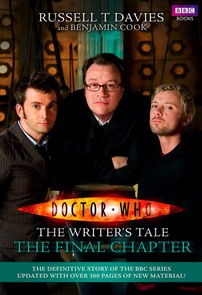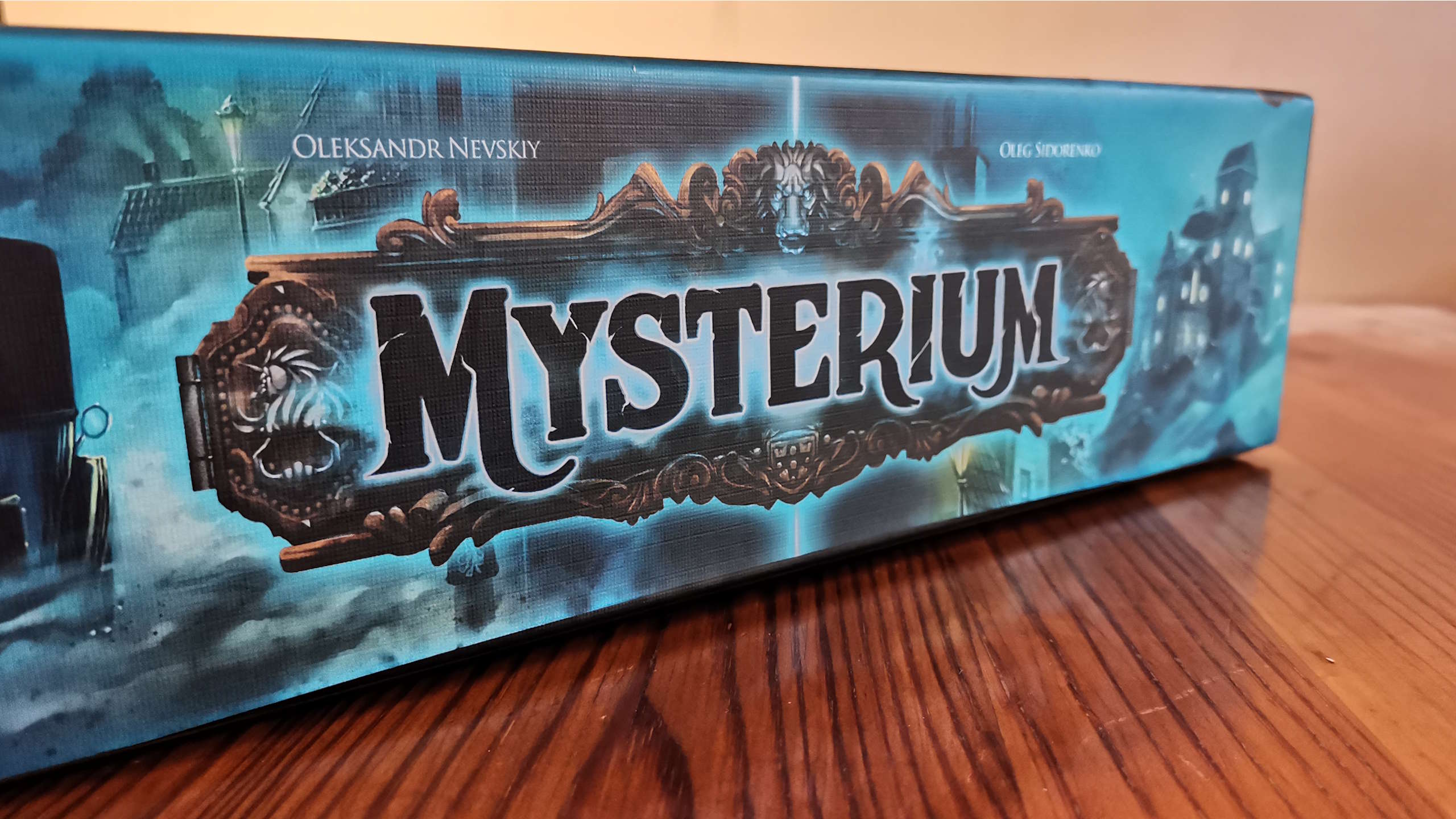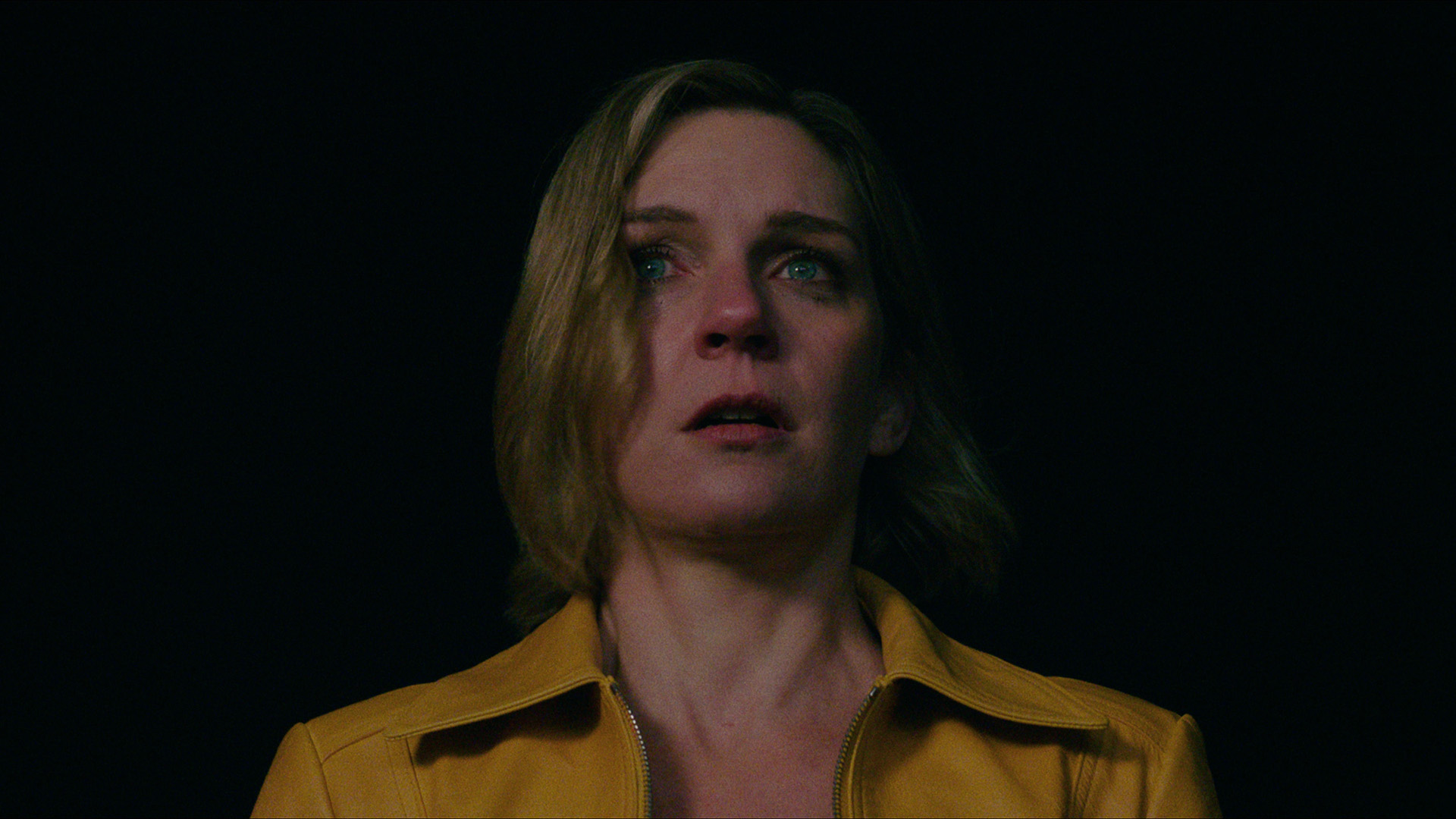Why you can trust GamesRadar+
Doctor Who: The Writer’s Tale, published back in Autumn 2008, told the behind-the-scenes story of how showrunner Russell T Davies writes Doctor Who, in the form of a year’s worth of email correspondence between Davies and journalist Benjamin Cook. “You can douse all the other books about new Who in lighter fluid and spark up your Zippo – this is the only one you need”, raved some bloke at SFX, in a five-star review quote so pathetically positive they’ve now slapped it on the back of the new edition (take that, Boyd Hilton). Yes, a new, expanded version is being released, on 15 January . The Writer’s Tale: The Final Chapter adds over another year’s worth of correspondence - 352 pages worth, adding up to another 135,000 words. It’s well worth buying, even if you’ve already got the original edition.
What are the highlights of the new material? Well, for one thing, these emails don’t just describe the process of writing the Specials, they are part of the process – at one point, Davies actually decides that Wilf should be the one who causes the Doctor’s regeneration in the middle of an email. There are interesting scenes cut from the final shooting scripts: like the sequences from “The End Of Time” in which the Doctor finally meets American newsreader Trinity Wells. And there’s also a very interesting entry where Davies discusses the way he writes Doctor Who, which answers a recurring criticism. Discussing rewatching a repeat of “The Sound Of Drums”, he ponders the fact that you suddenly learn about things like the Archangel network, the Valiant, and the TARDIS becoming a Paradox Machine out of nowhere, with no advance seeding or foreshadowing in the script. It’s a fascinating passage, worth quoting at length:
“I can see how annoying that looks. I can see how maddening it must be, for some people. Especially if you’re imposing really classical script structures and templates on that episode, even unconsciously. I must look like a vandal, a kid or an amateur… The simple fact is, all those things were planned. All of them were my choice. They’re not lazy, clumsy or desperate. They’re chosen. I can see more traditional ways of telling those stories, but I’m not interested. I think the stuff that you gain from writing in this way – the shock, the whirlwind, the freedom, the exhilaration – is worth the world. I’ve got this sort of tumbling, freewheeling style that somersaults along, with everything happening now - not later, not before, but now, now, now. I’ve made a Doctor Who that exists in the present tense. It’s happening now, right in front of your eyes! If you don’t like it, if you don’t join in with it then… blimey, these episodes must be nonsensical. But those classical structures can be seen in Primeval, in Demons, in Merlin, in all of them – and yet we stand with millions more viewers. And I think that’s partly why.”
As you’ve probably seen reported elsewhere, there was, incredibly, talk of a Torchwood musical, with the blokes from Abba involved! But there are plenty more interesting facts revealed in the book. Here’s 20 things we gleaned from the new edition:
1. David Tennant had a short-lived “wobble” about staying on for the fifth series (before his leaving was announced, mind), and did have a meeting with incoming producer Steven Moffat, in which Moffat laid out his plans for the season.
2. Other ideas were considered for the Easter special. One was very space opera, all dogfights and spaceships, with the Doctor arriving in the midst of a war in space. One of the races involved might have been the Chelonians - man-sized tortoises from Gareth Roberts’s Who novel The Highest Science.
3. Another centred around a deserted hotel, and would have seen weird, spindly-legged alien creatures like centaurs, with singsong voices, freezing Earth in time for a bizarre carnival procession.
Weekly digests, tales from the communities you love, and more
4. Yet another was a kind of Star Trek pastiche - essentially “the Doctor on board the Enterprise, puncturing all that Starfleet pomposity with this sheer Doctor-ness”.
5. Speaking of which, back in 2004, a Doctor Who/Star Trek crossover was seriously on their list of plans, until Enterprise was axed.
6. Gareth Roberts’s first treatment for the Easter special involved an outer-space hotel with mysteriously disappearing guests, who were being taken down to the planet below to be implanted with alien eggs (because eggs=Easter, see?). Sounds a bit Battlestar Galactica (70s version) to us.
7. Phil Ford’s first treatment for his special was a sword and sorcery story called “A Midwinter’s Tale”, featuring an alien princess who’s come to Earth to be married. It all ended up with much chasing around through secret corridors underneath Buckingham Palace.
8. Davies considered other options for David Tennant’s final story, too. It could have been a one-parter, which saw the Doctor dying saving a family of four aliens stranded in a small spaceship with a leaky engine. Fixing the engine would have irradiated the Doctor.
9. Instead of the Vinvocci, “The End Of Time” could have featured gloop-faced “runny people” aliens.
10. For two or three days, Russell was planning to bring back the Daleks for “The End Of Time” too. They would have been in an alliance with the Time Lords, and there would have been a Dalek Parliament and a Dalek Minister. He eventually changed his mind after learning that Steven Moffat is using the pepperpots in season five.
11. A line was cut from the scene where the Doctor talks to Wilf on the Vinvocci spaceship. He would have explained that he “was half-human back in 1999 for a couple of days” (a reference to the Paul McGann movie).
12. Who’s that mysterious woman in “The End Of Time”? Here it is from the horse’s mouth: “I like leaving it open, because then you can imagine what you want. I think the fans will say it's Romana. Or even the Rani. Some might say that it's Susan's mother, I suppose. But of course it’s meant to be the Doctor’s mother”.
13. Russell’s nickname for the alien in Torchwood: Children Of Earth became “Smokey the space pelican”, after a kid visiting the set said that it looked like one of the birds!
14. Both Martha and Mickey were originally planned to feature in Children Of Earth. Freema Agyeman became unavailable when she was cast in Law And Order: London. Mickey was only written out a week before the read-through, when Noel Clarke was offered a role in a Michael Winterbottom film.
15. It was also hoped that Martha would team up with Sarah Jane in the climax of season two of The Sarah Jane Adventures. When Freema became unavailable, the Brigadier was used instead.
16. Russell was offered the option to turn The Sarah Jane Adventures into a show airing on Sundays at 5.30pm, which would have required reinventing the series. He decided against it.
17. Mackenzie Crook is very enthusiastic about Doctor Who, and they’ve tried to cast him “a million times”, but the dates have never worked out. He was almost cast as Clive in “Rose”.
18. Davies’s parents were very involved with Swansea rugby club, and used to get Christmas cards from the Foreign Office every year for their part in helping a rugby player defect to the West, back in the ‘50s!
19. When Davies collected his OBE, he asked Prince Charles, “Are those ears real?”
20. Former defence secretary Geoff Hoon is a big Who fan, and owns a sonic screwdriver (Benjamin Cook was at university with Hoon’s son).
Ian Berriman
The Writer’s Tale: The Final Chapter is released by BBC Books in paperback on 14 January, RRP £16.99. For more information, head to www.writerstale.com - from where you’ll also soon be able to download the completed shooting scripts for “Midnight”, “Turn Left”, “The Next Doctor” and all the 2009 specials.
Toby Whithouse with some cryptic clues about his upcoming Doctor Who script "Vampires Of Venice"
SFX Magazine is the world's number one sci-fi, fantasy, and horror magazine published by Future PLC. Established in 1995, SFX Magazine prides itself on writing for its fans, welcoming geeks, collectors, and aficionados into its readership for over 25 years. Covering films, TV shows, books, comics, games, merch, and more, SFX Magazine is published every month. If you love it, chances are we do too and you'll find it in SFX.



